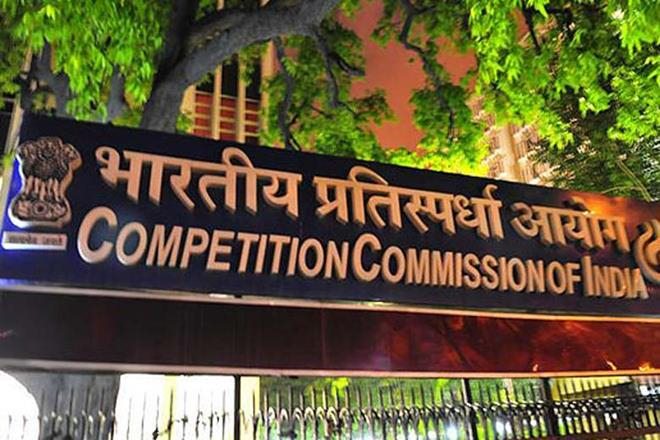This summary is written by Sharanya Ghosh, from Symbiosis Law School, Noida.
The Guest Speaker: Avinash Amarnath specialised directly in Competition Law after he graduated and went on to work in the Competition Law teams of Shardul Amarchand Mangaldas and Talwar Thakur and Associates. He was also working under Senior Advocate Amit Sibal in Competition Law as well as other fields such as those related to regulatory bodies. As of today, he is an independent lawyer and practices in the Supreme Court, the Competition Council of India (CCI), NCLAT and other forums.
The Host: Shweta Rath is a Senior Associate at LawSikho and an alumnus of Symbiosis Law School, Pune. A year into her career, she worked at Trilegal as a transactional lawyer and was a part of their Competition Team. In August, 2019 she joined LawSikho as a Course Anchor and Senior Associate. She was the host for this webinar.
Why should you watch this webinar?
Competition Law has been seen as an emerging field of law and this webinar explores some interesting aspects that may appeal to both general audiences as well as those who want to work in this field. It covers everything from what competition law is and goes on to explain the interface between competition law and other fields, such as its conflicts with the telecom sector.
What is competition law?
As Mr. Amarnath put it, competition law is all about economics. Not only does that make the field interesting but it also allows a creative interpretation of statutes. Competition law regulates the process of competition in the market and revolves around the concept of assuming that ‘free market’ is good for the economy and has to be protected and preserved. Competition law primarily regulates three areas: anti-competitive agreements, abuse of dominance and the kinds of mergers and acquisitions which may result in an adverse effect on the competition.

What kind of a growth has the field seen and why should I consider joining it?
The Competition Act was enacted in 2002. However, some of the major provisions came into force in 2009, which means that it is a fairly new industry. A lot of developments have taken place from the expertise, the scope of the CCI’s activities and there has also been a substantial increase in the number of cases. It is a growing area of law and thus it is a great time to be a competition lawyer, especially since the interface competition law has with other areas of law is also growing.
What are some common mistakes that people make when it comes to competition law?
Mr. Amarnath pointed out that people tend to read the law literally instead of looking at it from an economic perspective. It is one of the most common mistakes made by people. Another is thinking that Competition Law and the CCI are for inter party disputes. This may not always be the case as Competition law revolves around the market and focuses on the economy instead of the individual.
Having discussed the above, the conversation flowed to the main topic of conflicts with other sectoral regulators.
What is the difference between sector regulators and the CCI?
The main difference other than the respective sectors covered by the sector regulators and CCI is that sector regulators generally have an ex ante approach of looking at disputes: they create regulations based on issues and focus is on ensuring that the regulations are followed. The CCI takes up cases after the conduct has happened and tries to identify any violations. Conflicts arise when the sector regulators also have similar functions.
Why is there interface with other sectoral regulators?
There has been a movement towards a regulatory economy that highlights the importance of both the free market as well as control by State to protect consumers. Due to this, there are regulators in almost each sector which increases interface between sectors. This is not a phenomenon restricted to India but has been observed in economies across the globe.
How have different countries dealt with this problem?
Mr. Amarnath explained the three systems as those established in the United States, United Kingdom and India. He described the Indian system as a ‘sequencing system’ according to which the CCI takes up matters after they have been dealt with by the sector regulator.
One area where such disputes between sectors and competition law have taken place is the telecom sector. Why is there so much conflict and overlap in these fields?
The telecom industry is regulated by the DRAI that comes with its own set of stringent procedures and regulations. These regulations are also applied on core competition issues due to which it becomes inevitable that disputes arise.
What are some popular cases where there were disputes between the telecom industry and competition law?
Mr. Amarnath described two landmark judgements that have played an important role in shaping competition law today. These are the Competition Commission of India vs Bharti Airtel Ltd and the Bombay High Court’s judgement on the Star India Pvt Ltd and Sony in 2019.
Another sector with disputes arising with the field of competition law is that of intellectual property rights disputes. Why do these disputes arise and what are some examples?
Disputes arise over patents, copyrights and other intellectual properties and are often caused due to the already existing stringent rules in the sector. Telefonaktiebolaget Lm Ericsson (PUBL) vs Intex Technologies (India) Ltd is one such case where the Delhi High Court had said that the Acts in question shall be read harmoniously. This was before the Bharti Airtel judgement mentioned above.
What are some other sectors that may create conflicts in the area of competition?
Oil and gas is one such sector that may be affected by and suffered clashes with the competition law spectrum. PNGRB is one of the regulators for oil and gas. A few others could be the securities market and data protection in recent times.
Why would clashes between SEBI and CCI arise?
The SEBI has several functions that range from regulatory to adjudicatory wherein it has the power to punish those who do not follow its regulations. However, these regulations are applicable on a market, which also falls under the ambit of Competition Law. Due to this, disputes may arise.
Are there any specific cases in the CCI with relation to the securities market and SEBI?
The CCI recently passed an order in relation to the National Stock Exchange discriminating against certain traders. This case was already being investigated by the SEBI since 2015. The CCI did not proceed since proceedings were already being carried out by SEBI.
There have also been discussions revolving around the data protection sector. There is no regulatory body for data protection as yet. What is the CCI’s stand in such cases?
The CCI is not forbidden from investigating any issues. However, application of the Bharti Airtel judgement may be carried out once a regulatory body is set up as has been suggested under the Personal Data Protection Bill, 2019. Issues such as those revolving around WhatsApp have been brought before the CCI but dismissed since they were about privacy concerns and not the market.
Query: On the free side of market, the ‘data becomes the price.’ If the data collected by agencies such as WhatsApp goes up, it can be said that the price has escalated. Can the CCI intervene here?
Yes, the CCI has already considered this in relation to a case involving Google. Google claimed that it was not an enterprise since it provided its services for free. However, the CCI said that this since Google generates revenues out of the advertisements displayed by them. Similarly, the data collected by WhatsApp may be seen as a consideration. It does not have to be monetary consideration in this market.
What steps may be adopted to prevent such conflicts?
Section 21 and 21A of the Act provide that the CCI can consult with other sectoral regulators in case there are any issues. This is often seen as a solution to conflicts. However, these are discretionary suggestions and are not often applied. Moreover, each regulator would prefer protecting their own turf instead of looking at things from the competition law perspective.
Recently CCI has amended its regulations such that the informant now has to disclose any other pending litigation that they have with the parties. CCI has become much more cautious post the Bharti Airtel disputes. Hopefully, this will help in avoiding these conflicts.
Query: How would you take up these cases and what kind of strategies do competition lawyers adopt while dealing with sector specific competition law disputes?
Due to recent amendments and cases such as the Bharti Airtel judgement, cases need to be analysed keeping in mind the sector regulators involved. However, this should not be misused in a way that strangles the powers of the CCI. Thus, a stricter interpretation of the Bharti Airtel case is necessary.
Query: What are the changes that have come into the picture after the RERA was established for the real estate sector?
Before the Real Estate Regulatory Authority was set up, the CCI was compelled to intervene since there was no regulatory body in the sector and the consumers and other parties needed protection. Post the setting up of the RERA, the CCI can now be more hesitant to intervene in such matters since there is a sector regulator that already has regulations in place. However, one issue is that CCI has already set precedents in these matters. However, it must first apply the Supreme Court’s decision in the Bharti Airtel case first.
Query: There are certain provisions, such as under the Electricity (Supply) Act, 1948 that permit the sector regulator board to take decisions regarding market competition and other issues. Does it close the door for CCI to look into these matters?
Mr. Amarnath agreed that this Section could create a conflict in a future case and that it becomes essential that the government create a policy or an amendment that protects the powers of the CCI since the remedies under the Electricity Act and other Acts may hinder the process of competition law as a whole.
Query: Are there any cases in which parties have visited the CCI directly before approaching the respective sector regulators?
No, generally this does not happen since parties generally approach the regulatory authorities and then approach CCI. There have been some cases related to the real estate sector but with the establishment of the RERA, these cases are likely to discontinue. As for other sectors, the Bharti Airtel judgement will apply.
Query: Do you see fair competition environment as a fundamental right as under the right to freedom of business?
Mr. Amarnath spoke of the provisions and the objectives of the CCI and the Competition Act, 2002 in response to this query. One may apply the Constitution’s Article 19 and the Directive Principles of State Policy under which the state shall endeavour to remove inequalities to prevent monopolistic practices.
It is important here to note that Competition Law not only protects the competitors but also the process of competition.
LawSikho has created a telegram group for exchanging legal knowledge, referrals and various opportunities. You can click on this link and join:
 Serato DJ Crack 2025Serato DJ PRO Crack
Serato DJ Crack 2025Serato DJ PRO Crack










 Allow notifications
Allow notifications


